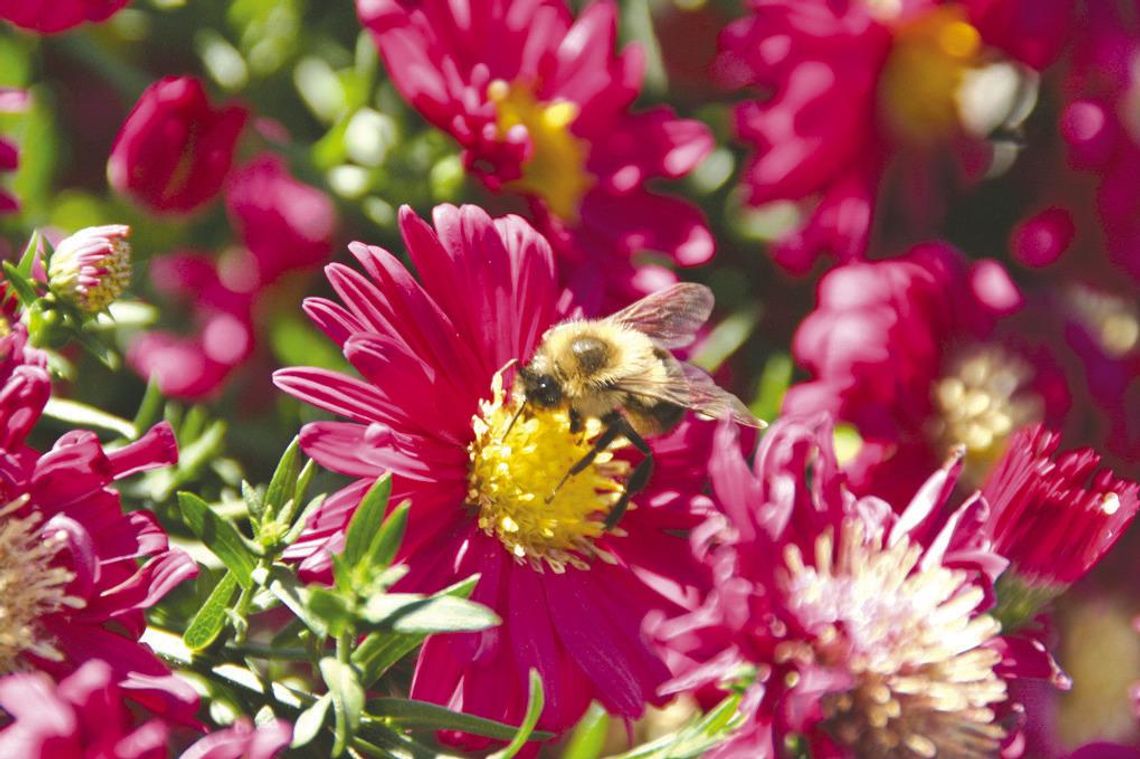If only we humans could claim to be the most productive species on our planet, but that title goes to the insect world. Yes, 97% of insects contribute to our ecosystem, and our way of life depends on them. Beneficial insects are essential to the biological control of harmful insects in our homes, yards, gardens and crops. They are a food source for birds, lizards, frogs and other small animals. Our world is a cleaner and healthier place because of the work they do.
Beneficial insects can be divided into four categories: predators, parasitoids, decomposers/recyclers and pollinators. While there are many examples of insects in each category, we can focus on just a few.
Predators such as lady beetles (ladybugs), lacewings, hover fly larvae, and soldier beetles all feed voraciously on aphids, which cause millions of dollars of crop damage worldwide and are a nuisance to many home gardeners. Dragonflies are an effective natural predator of mosquitoes and their larvae, while arachnids, i.e., spiders, are often the most important way to naturally control insect population pests.
Parasitoids prey on other insects by feeding off and then killing, the host insect. The braconid wasp, for example, injects its eggs into the hornworm caterpillar, and then the larvae feed from the inside out, killing the caterpillar. Hornworm caterpillars are notorious for stripping tomato plants to the stems. The tachinid fly larvae burrow into many destructive caterpillars and beetle larvae. One is the Japanese beetle that feeds on more than 200 kinds of trees, shrubs, grasses, and house plants.
Without decomposers/recyclers, our world would be deep in organic waste and dead animal bodies of all species. Within a dead organism’s body are nutrients that insects break down into carbon, nitrogen, and other raw elements, subsequently recycling these nutrients into the environment. Flies and their larvae and many types of beetles are key in decomposing dead animals. Ants also depend on organic waste for food. Carpenter ants accelerate decomposition of diseased or dead wood that results in nitrogen being released back into the soil.
The pollinator group of beneficial insects even brings you your cup of coffee. Honeybees pollinate not only coffee plants but also apples, pears, cherries, berries, citrus, melons, cucumbers, squash and many other fruits and vegetables. Butterflies not only beautify our world but also pollinate flowers, fruit trees, and bushes. Beetles, moths, mosquitoes, wasp, ants, midges and flies also play a part in flower pollination.
The Biological Conservation Journal has reported that 40% of all insect species are declining globally and that a third of them are endangered. Habitat loss, pesticides and climate change are threatening insect populations worldwide.
We can be beneficial humans by using non-chemical controls of pests, e.g., pruning, hand-picking insects, planting to attract beneficials, or covering plants with netting. Furnish an insect habitat in your yard by providing shelter of mulch, leaf or limb litter in landscape beds or along fence lines; this will help insects leave turf grass areas and use ground cover plants instead. Also, grow a variety of plants that bloom — especially those with small clusters of flowers — in order to attract pollinator insects. Plants that will attract pollinators here in Central Texas are alyssum, purple coneflower, basil, calendula, zinnias, bachelor’s button and cosmos. The greater the variety of plants in your landscape the more likely that different types of beneficial insects will make it their home. In dry weather, place small shallow containers with water out in the landscape for insects to drink (add a few small rocks so they do not drown).
There has been a 300% increase in the volume of agricultural production dependent on insects and other pollinators in the last 50 years. If you think food prices are high now, imagine a world without these pollinators. Unless we learn to live with our beneficial insects, it will be almost impossible to afford to feed the world’s population. So, the next time you see an insect think before you spray, smash, slap, or swat.
Hays County Master Gardeners are now accepting applications for the Fall 2023 Master Gardener Training Class. Applications are available on our website: hayscountymastergardeners. org, by emailing HCMGA@hayscountymastergardeners. org or by calling the Texas A&M Agrilife Extension Office at 512-393-2120.








